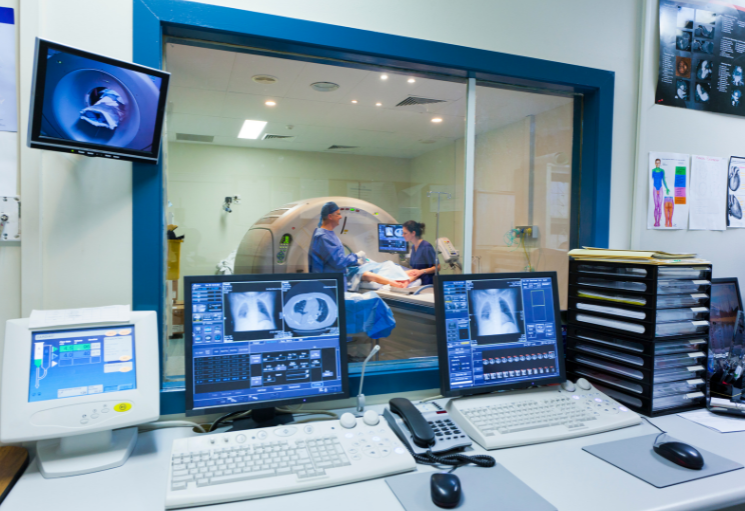
AI Enhances Clinical Decisions
The use of artificial intelligence is increasing in the healthcare industry. Its popularity is partly due to its ability to promote human-centered design. One way that artificial intelligence achieves this is through the use of clinical decision support systems (CDSS). For instance, CDSS enhances human intelligence by allowing clinicians to have specific assessments for each patient and promote fast and accurate recommendations [1]. This technology is predicted to improve clinical decision-making and will improve relationships between providers and patients [1]. Furthermore, CDSS will have to implement human-centered design factors to be successful. These factors include removing bias, protecting patient privacy, and promoting fairness [1]. This in turn will improve trust in the technology, since functional requirements will be catered specifically to improving patient and provider relationships. Moreover, using AI in CDSS will improve workflows and will promote access to meaningful data during the decision-making process.

AI Supports Advancements in Medical Imaging & Diagnosis
A key factor of medical diagnosis is the technology revolving around medical imaging and radiology. One of the key areas that need improving in this field is making the tools easier to use, access, and understand [2]. Therefore, the implementation of AI in medical imaging must be done with human-centered design in mind. Currently, many services are available that let patients upload photos of their skin conditions or symptoms online, and then an AI system looks for potential diagnoses [2]. Moreover, these tools can also take input on a patient’s family and medical history to make a better and faster diagnosis. Overall, AI can be trained to detect and predict worsening symptoms or conditions in patients. This can reduce clinical workflow by enhancing how data is collected and available to clinicians. This, in turn, can also promote personalized care for patients, since AI can propose patient-specific examinations.

For these technologies to be successful, the focus needs to be shifted towards creating interfaces that are easy to use and accessible by both patients and providers. This will allow clinicians to offer patients more screening options that are specific to care [2]. When incorporating human-centered design, health IT companies need to focus on everyone being able to use the technology. This includes users with less skills regarding technology, and even those in low-income countries [2]. Therefore, it’s important to implement AI with the idea of creating affordable, easy-to-use, and accessible technology. This will promote better diagnostics and help patients utilize services that provide preventive care rather than waiting until their prognosis is worse.
AI Promotes Brand Intelligence Among Patients
Patient loyalty is important, partially due to the Internet allowing patients to compare providers. In fact, a survey showed that 69% of patients would switch providers to one that offered services they were interested in [3]. Therefore, implementing human-centered design plays a critical role in patient retention. Providers need to utilize tools that collect feedback from patients and work towards appealing to their patients. AI is an effective tool for collecting feedback from patients. For instance, AI can provide insights into patient satisfaction, and also improve the workflow so that providers have more time to spend on their patients [3]. Furthermore, AI can convert unstructured data such as discussions, online reviews, and messages into meaningful analyses of patient satisfaction [3]. This provides real-time and accurate patient feedback that can be used to make decisions. Overall, AI is an effective tool to promote brand intelligence through the use of human-centered design.

HITS
HITS provides management services and collaborates with clinicians in the development of health informatics. We provide tools that promote safe, timely, patient-centered, and equitable care. Our agency culture and mission facilitate customer and human-centered design. Additionally, we tailor software and project management support products to meet our customer’s needs. HITS also focuses on transforming health care by analyzing integrated medical solutions and evaluating information systems. Our goal is to enhance individual and population health outcomes, improve patient care, and strengthen the clinician-patient relationship.
- https://www.frontiersin.org/articles/10.3389/fcomp.2023.1187299/full
- https://www.forbes.com/sites/saibala/2023/09/24/artificial-intelligence-is-rapidly-changing-the-world-of-medical-imaging/?sh=1c6d741d20b8
- https://www.medicaleconomics.com/view/the-key-to-unlocking-patient-loyalty-leveraging-brand-intelligence-in-health-care